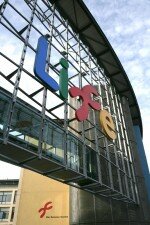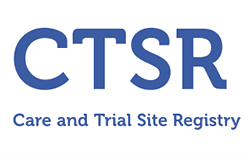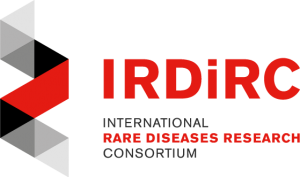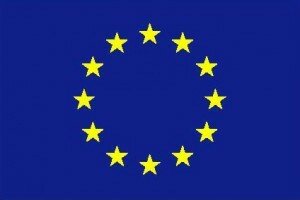Institute of Genetic Medicine

Newcastle University has an excellent pedigree in research and teaching with a strong interdisciplinary research base. In the UK it ranks in the top 5 for both hospital- and laboratory-based clinical subjects, with two-thirds of the outputs classified as world leading or internationally excellent in the areas of ageing, chronic disease, genetics and stem cells.
The MRC Centre for Neuromuscular Diseases at Newcastle
The MRC Centre for Neuromuscular Diseases at Newcastle is a clinical and research reference centre that forms part of the Institute of Genetic Medicine, a leading research institute within the university that works together with the Newcastle hospitals. It is an internationally recognised centre of excellence for diagnosis, management and research into inherited neuromuscular diseases. In partnership with the Institutes of Neurology and Child Health at University College London, the Newcastle centre was selected to be part of the UK Medical Research Council’s first translational research centre for neuromuscular diseases, an initiative which aims to promote multidisciplinary translational research activity in these diseases.
Professors Kate Bushby, Volker Straub and Hanns Lochmüller head the Centre and hold joint appointments between Newcastle University and the National Health Service (NHS). Their time is split between research and clinical commitments, both of which primarily focus on muscle disease. Research in the centre is supported by grants from numerous national and international awarding bodies. The centre is a globally leading neuromuscular clinical trial site involved in multiple industry-sponsored trials and is coordinating the European arm of the largest ever neuromuscular trial, an NIH-funded trial on steroid dosing regimes in Duchenne muscular dystrophy involving 60 centres.
Muscle clinics and diagnostic referrals
In addition to housing the regional diagnostic service for neuromuscular diseases for the northern region, the centre is the base for the national diagnostic and advisory service for the limb girdle muscular dystrophies and attracts both clinical and laboratory referrals from the UK and beyond. The clinical team based at the centre runs paediatric and adult clinics for over 1200 neuromuscular patients annually throughout the North of England. Clinics are held both in Newcastle and at a range of other locations throughout the region, in conjunction with local physiotherapists and other local staff. The centre has collaborative links with colleagues in cardiology, respiratory support, orthopaedics, neuropathology and other specialities. It welcomes visiting doctors and other staff for specialised training in neuromuscular disease diagnosis and management.
Role within Neuromics
WP 12 leaders: Impact and Communication
WP 13 leaders: Research Infrastructure
Contribute to WP1: Deep phenotype analysis
Contribute to WP2: Identification of novel disease genes
Contribute to WP3: Identification of disease modifiers
Related projects
The centre is highly active internationally in rare disease and neuromuscular networking and healthcare policy initiatives. Since 2012 it has coordinated the EUCERD Joint Action on Rare Diseases, responsible for aiding the European Commission with the preparation and implementation of Community activities in the field of rare diseases. It also formerly coordinated and still plays a leading role in the Neuromuscular Network of Excellence TREAT-NMD. Staff have also been in key roles in other European projects, including BIO-NMD, CARE-NMD, NMD-Chip and EuroBioBank.
Most notably, Newcastle University plays host to coodination office for the RD-Connect project.
Policy, Ethics and Life Sciences
Policy, Ethics and Life Sciences (PEALS) is a leading research centre in the University’s Department of Sociology. 85% of the department’s research is deemed world-leading, internationally excellent or internationally recognised. PEALS is recognised for its world leadership in examining the complex questions raised by innovations in the medical and life sciences. Its primary aim is to produce world class research focused on the social and ethical debates around the contemporary life sciences. Working with a wide range of academic and community-based partners, it aims to develop rigorous and socially engaged analysis, innovative teaching, and public dialogue that informs and contributes to future practices and policies.
PEALS works to foster knowledge exchange between researchers and other stakeholders, including: policymakers, practitioners, commercial developers, and diverse publics. The ‘PEALS model’ involves the close integration of international research with excellent continuing professional development, and a lively programme of public engagement. PEALS staff have been involved on the Ethics and Governance Council of UK Biobank, including advising the council in involving the public in biobanks research and governance.
PEALS has been involved in directing and conducting research on ethical and social issues for a number of European projects, including TREAT-NMD, NMD-Chip, BIO-NMD, Genetics of Healthy Ageing (GEHA), DGEMap and SmartHEALTH. PEALS is a founder and active member of the international research consortia, ‘Ethics of Family in Health and Social Care’ and ‘Provision and Acquisition of Reproductive Tissue for Science’. PEALS staff are involved in the E-Rare2 External Advisory Board.
The key research strengths at PEALS currently address themes across:
- Reproductive and Genetic Medicine
- Families, Kinship and Childhood
- Embodiment and Identity
- Research Ethics
Workpackage involvement
-
Workpackage 12 - Impact and communication
-
Workpackage 13 - Research infrastructure
-
Workpackage 9 - Omics-assisted therapy development
-
Workpackage 1 - Deep phenotype analysis in pre-symptomatic and symptomatic NDD/NMD patients
-
Workpackage 7 - Omics-based biomarkers for progression and therapy monitoring related to disease pathways
-
Workpackage 2 - Identification of novel disease genes in NDD/NMD patients
-
Workpackage 3 - Identification of modifying factors in cohorts enriched by deep phenotyping
-
Workpackage 8 - Bioinformatic tools for diagnostic prediction



